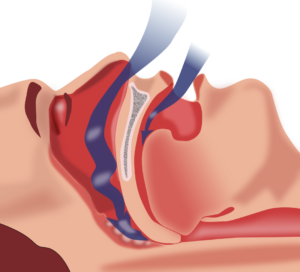Many survivors of a small stroke experience symptoms for days after the event.
This can make them wonder if they’re having new strokes or transient ischemic attacks.
This is why it’s so very important to visit the ER as soon as possible following the sudden onset of any of the following symptoms:
• Drooping on one side of the face
• Slurred speech or difficulty talking or formulating words
• Vision disturbances
• Facial numbness
• Clumsiness
• Paralysis, diminished movement or weakness on one side of the body
• A sensation of one side of the body being pulled sideways
• Confusion
Though conditions less serious than a stroke or TIA can cause these symptoms, wouldn’t you want to know with absolute certainty whether or not it was a stroke?
That’s why a prompt evaluation is necessary – even if the symptoms lasted under 30 seconds.
If you’re ultimately diagnosed with having suffered from even a small stroke, you may find that the symptoms continue to occur, even though you’ve been put on blood thinners.
“The fascinating thing about the brain is that the more deeper you are in the brain, the more concentrated information gets,” begins Atif Zafar, MD, medical director of St. Michaels Hospital in Toronto, Ontario, and former director of the stroke program at University of New Mexico Hospital.
Dr. Zafar continues, “Imagine your entire brain information eventually goes through the brainstem, which is often as thick as the diameter of your pinky finger.
“So a tiny infarct or bleed in a deep part of the brain like the brainstem or thalamus can often cause significant symptoms that last for a long time.
“The concept is that a lot of information is going through these areas depending on their exact location.”
Top Risk Factors for a Stroke
Old Age

High Blood Pressure

Shutterstock/Photographee.eu
Smoking

Freepik.com, drobotdean
Obesity

Michael Coghlan/Adelaide, Australia
Atrial Fibrillation

Untreated Obstructive Sleep Apnea

Habib M’henni, Wikimedia Commons
Dr. Zafar is author of the book, “Why Doctors Need to Be Leaders.” His interests include vascular and endovascular neurology, and the neurosciences.
 Lorra Garrick has been covering medical, fitness and cybersecurity topics for many years, having written thousands of articles for print magazines and websites, including as a ghostwriter. She’s also a former ACE-certified personal trainer.
Lorra Garrick has been covering medical, fitness and cybersecurity topics for many years, having written thousands of articles for print magazines and websites, including as a ghostwriter. She’s also a former ACE-certified personal trainer.
.



























